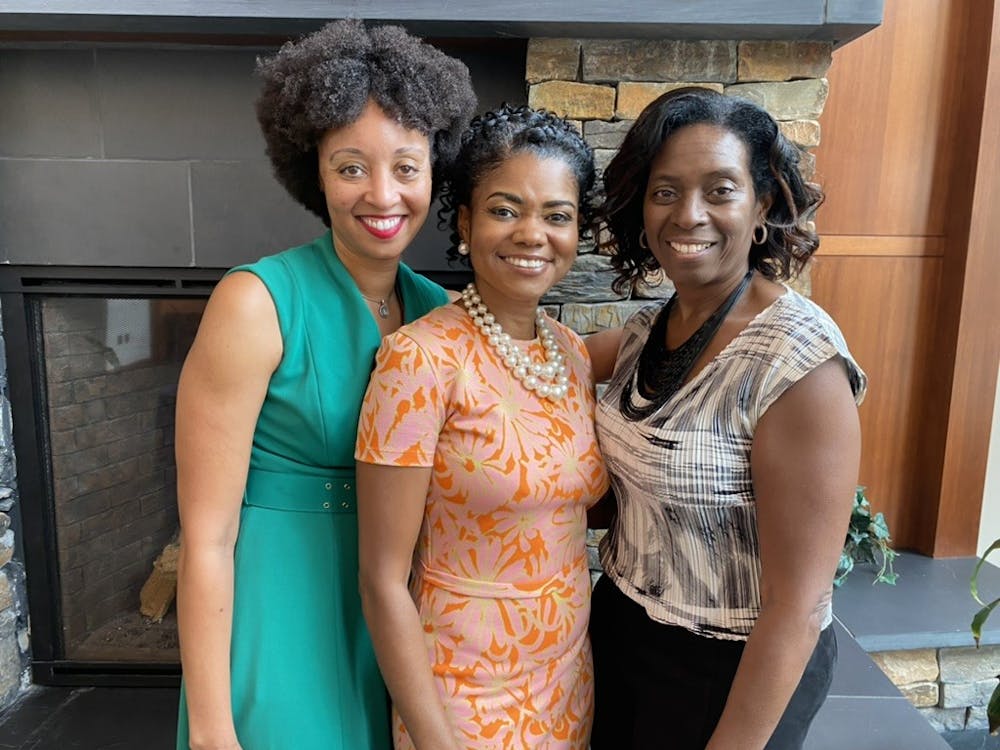About three times as many Black women die while giving birth than white women, regardless of education level or socioeconomic status, according to the Center for Disease Control.
Non-racial factors cannot explain away this discrepancy, said Venus Standard, an assistant professor at the UNC School of Medicine's department of family medicine and a certified nurse midwife.
“A doctoral degree Black woman has more of a chance of dying (while giving birth) than an eighth-grade educated white woman,” she said.
That's why Standard teamed up with Vanderbilt University's Stephanie DeVane-Johnson and Duke University's Jacquelyn McMillian-Bohler to create the Lived Experience Accessible Doula program. The three women work as co-principal investigators.
The eight-week program trains Black doulas, or non-medical birth experts, on how to support Black mothers emotionally, physically and informationally during the birthing process, Standard said.
DeVane-Johnson, an associate professor in the School of Nursing at Vanderbilt, cited allostatic load (the burden that results from accumulation of stress) and weathering (repeated exposure to adversity and discrimination) as reasons why Black women’s bodies age faster. Because of this aging, Black women are more prone to high blood pressure and health complications, she said.
“It's amazing what you get like-minded people who potentially have the same lived experiences together to serve the greater good and how impactful that is,” she said.
The LEAD program also focuses on how to support mothers outside the birthing process, through things like grief training, Black culture and mindfulness. McMillian-Bohler, the director of the Institute for Educational Excellence at Duke University School of Nursing, said she instructs the mindfulness aspect of the program.
“Our goal is to help improve not just the birth process, but the relationship building,” McMillian-Bohler said. “It's a gateway into the Black maternal community to provide information associated with empowerment and self-care and wellness.”



